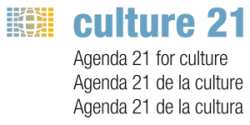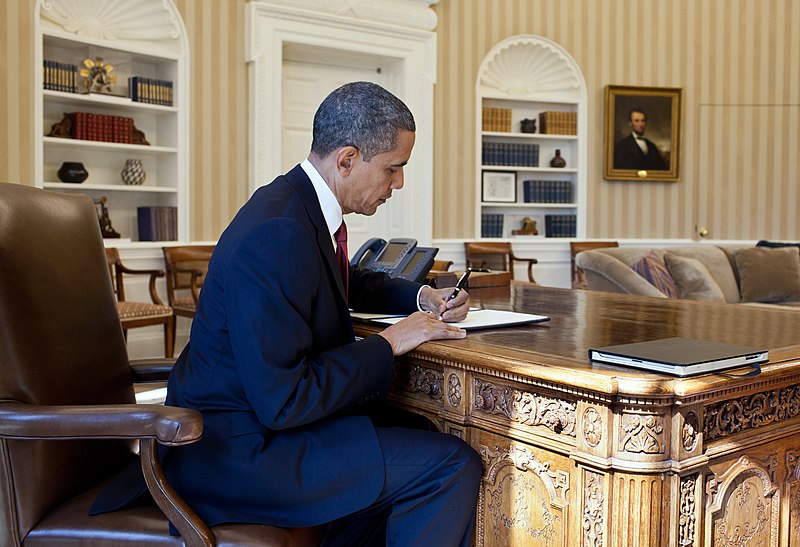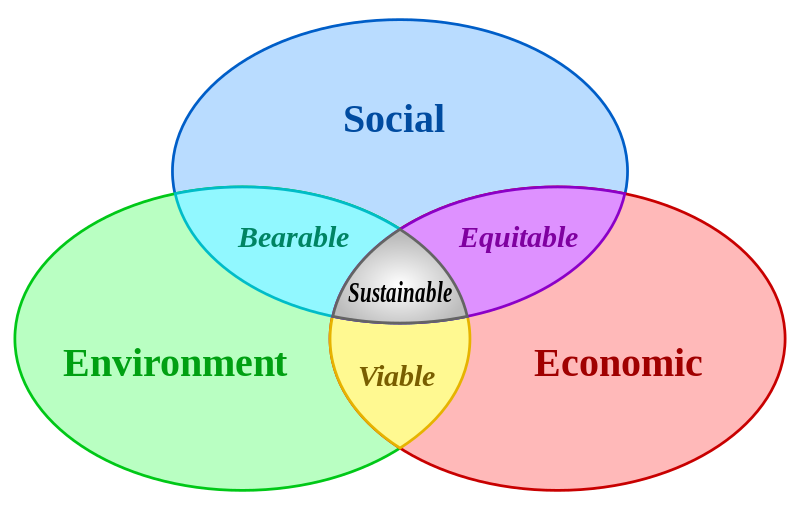A look at Agenda 21 in the United States

On June 9, 2011, an Executive Order established the White House Rural Council with 25 executive branch departments including Defense, Justice, Homeland Security, National Drug Control, Environmental Quality, Labor, Commerce, Interior, EPA, Housing, Health, Education to name just a few.
The order covers 16% of the American population who lives in rural counties because they “supply our food, fiber, and energy, safeguard our natural resources, and are essential in the development of science and innovation. ”
https://www.youtube.com/watch?v=_juUVKKBw-k

Executive Order 13575 of June 9, 2011
Establishment of the White House Rural Council
By the authority vested in me as President by the Constitution and the laws of the United States of America and in order to enhance Federal engagement with rural communities, it is hereby ordered as follows:
- Section 1. Policy.
- Sixteen percent of the American population lives in rural counties. Strong, sustainable rural communities are essential to winning the future and ensuring American competitiveness in the years ahead. These communities supply our food, fiber, and energy, safeguard our natural resources, and are essential in the development of science and innovation. Though rural communities face numerous challenges, they also present enormous economic potential. The Federal Government has an important role to play in order to expand access to the capital necessary for economic growth, promote innovation, improve access to health care and education, and expand outdoor recreational activities on public lands.
To enhance the Federal Government’s efforts to address the needs of rural America, this order establishes a council to better coordinate Federal programs and maximize the impact of Federal investment to promote economic prosperity and quality of life in our rural communities.
- Sec. 2. Establishment.
- There is established a White House Rural Council (Council).
- Sec. 3. Membership.
(a)
The Secretary of Agriculture shall serve as the Chair of the Council, which shall also include the heads of the following executive branch departments, agencies, and offices:
(1)
the Department of the Treasury;
(2)
the Department of Defense;
(3)
the Department of Justice;
(4)
the Department of the Interior;
(5)
the Department of Commerce;
(6)
the Department of Labor;
(7)
the Department of Health and Human Services;
(8)
the Department of Housing and Urban Development;
(9)
the Department of Transportation;
(10)
the Department of Energy;
(11)
the Department of Education;
(12)
the Department of Veterans Affairs;
(13)
the Department of Homeland Security;
(14)
the Environmental Protection Agency;
(15)
the Federal Communications Commission;
(16)
the Office of Management and Budget;
(17)
the Office of Science and Technology Policy;
(18)
the Office of National Drug Control Policy;
(19)
the Council of Economic Advisers;
(20)
the Domestic Policy Council;
(21)
the National Economic Council;
(22)
the Small Business Administration;
(23)
the Council on Environmental Quality;
(24)
the White House Office of Public Engagement and Intergovernmental Affairs;
(25)
the White House Office of Cabinet Affairs; and such other executive branch departments, agencies, and offices as the President or the Secretary of Agriculture may, from time to time, designate.
(b)
A member of the Council may designate, to perform the Council functions of the member, a senior-level official who is part of the member’s department, agency, or office, and who is a full-time officer or employee of the Federal Government.
(c)
The Department of Agriculture shall provide funding and administrative support for the Council to the extent permitted by law and within existing appropriations.
(d)
The Council shall coordinate its policy development through the Domestic Policy Council and the National Economic Council.
- Sec. 4. Mission and Function of the Council
- The Council shall work across executive departments, agencies, and offices to coordinate development of policy recommendations to promote economic prosperity and quality of life in rural America, and shall coordinate my Administration’s engagement with rural communities. The Council shall:
(a)
make recommendations to the President, through the Director of the Domestic Policy Council and the Director of the National Economic Council, on streamlining and leveraging Federal investments in rural areas, where appropriate, to increase the impact of Federal dollars and create economic opportunities to improve the quality of life in rural America;
(b)
coordinate and increase the effectiveness of Federal engagement with rural stakeholders, including agricultural organizations, small businesses, education and training institutions, health-care providers, telecommunications services providers, research and land grant institutions, law enforcement, State, local, and tribal governments, and nongovernmental organizations regarding the needs of rural America;
(c)
coordinate Federal efforts directed toward the growth and development of geographic regions that encompass both urban and rural areas; and
(d)
identify and facilitate rural economic opportunities associated with energy development, outdoor recreation, and other conservation related activities.
- Sec. 5. General Provisions.
(a)
The heads of executive departments and agencies shall assist and provide information to the Council, consistent with applicable law, as may be necessary to carry out the functions of the Council. Each executive department and agency shall bear its own expense for participating in the Council.
(b)
Nothing in this order shall be construed to impair or otherwise affect:
(i)
authority granted by law to an executive department, agency, or the head thereof; or
(ii)
functions of the Director of the Office of Management and Budget relating to budgetary, administrative, or legislative proposals.
(c)
This order shall be implemented consistent with applicable law and subject to the availability of appropriations.
(d)
This order is not intended to, and does not, create any right or benefit, substantive or procedural, enforceable at law or in equity by any party against the United States, its departments, agencies, or entities, its officers, employees, or agents, or any other person.

Image credit: Will Lovell
A recent article in Washington Post appeared with the innocuous title, “What we need: Smarter growth plans.” The author is Roger K. Lewis, a practicing architect and professor emeritus at the University of Maryland. Who can possibly object to “smarter growth plans?” Except that “smart growth plans” is the euphemism used by the United Nations for its Agenda 21, a direct assault on private property rights and American sovereignty.
Roger K. Lewis suggests that “smart growth” was designed by market forces driven by “green building.” He makes no mention of Agenda 21 and ICLEI objectives and intrusion into our society since the early 1970s or the agreement signed in 1992 that went under the radar of the American people’s understanding of the complex negative ramifications for our economy and our liberties.
I have not met Americans who think, “sprawl-producing planning, zoning and mortgage templates are obsolete” as the author claims. Would Americans willingly give up their land and homes with or without compensation in exchange for a move to a densely populated high-rise, with no parking garages, no access to cars, like rats fenced in a grey concrete maze?
Communist “social engineering” confiscated land and homes for agriculture. People were forced to move into many-storied, tiny cinder block apartments without any compensation for the land or homes bulldozed. They were forced to commute by bicycles or public transit.
Lewis deems subdivision developments with low-density, detached, single-family homes as outdated. He calls the areas educationally dysfunctional and unsafe. American suburbia was built, he says, on four assumptions that have lost validity today:
- Unlimited supply of land
- Inexpensive and inexhaustible supply of oil
- Homogenous land use
- The American dream to own and inhabit a mortgaged house.
I am not sure on what research Lewis based his conclusions, but we have huge domestic oil reserves if permits were issued to drill. We also have a vast land mass. Some areas have 70 or less inhabitants per square mile. Americans still want to own their own home and want to live in a homogeneous community of other homeowners. Just because power hungry bureaucrats at the United Nations have decided to “preserve” land and the environment for the future of the planet and its animals, neglecting the future of humans, does not mean Americans agree to this vision.
“Much of America’s land cannot and should not be developed.” Who are you to decide for us, Mr. Lewis and why? Last time I checked we were free people who determined their own life choices.
“Dependency on oil and limitless use of cars pose daunting environmental, economic, and geopolitical problems.” Who is going to decide the limit to our car use? Is it going to be done by law, more regulations, or executive order?
A handful of environmentalists, the EPA, and the United Nation’s dictators, using faulty debunked data from the University of East Anglia or phony research are trying to separate Americans from their land use, cars, trucks, and the open-wide roads.
Lewis continues his Agenda 21 fallacy. “The traditional nuclear family—mom, dad, two to three kids and one or two pets—is now a minority of America’s households.” I am positive that this man is not describing America that I know and see every day. His statements continue, “Today a majority of households are people, young or old, living alone; couples or sets of unrelated individuals of various ethnicities, ages and tastes.”
Agenda 21 and Mr. Lewis suggest building high-rises in “designated areas within municipalities where new development and re-development is feasible and desirable.”Affordable housing is a priority and so are environmental standards.
It is obvious that “smart growth plans” or Agenda 21 designed by United Nations will affect our future choices in how we live and where. EPA will be involved and will twist the arms of those who do not adopt “smart growth plans,” denying grants to states and cities and levying other penalties. By the time Americans realize the implications of Agenda 21“smart growth,” they will lose their homes and lands with no compensation. At least people who lost property under Eminent Domain have been compensated.

The International Council for Local Environmental Initiatives (ICLEI) is a conglomerate of 600 national, regional, and local government associations who promote “sustainable development” and protection of the environment because of man-made global warming that does not exist.
“Sustainable development” is the United Nations effort to contain and limit economic development in developed countries and thus control population growth. It is “sustainable de-growth,” plain and simple. The focus is “low-income agriculture” and to set limits on the developed world.
United Nations and its affiliates believe that first world countries polluted significantly during their development while urging third world countries to reduce pollution thus impeding their growth. Implementation of“sustainable development” would revert our society to a pre-modern lifestyle.
ICLEI wants to keep the environment as pristine as possible through “ideal-seeking behavior.” These euphemisms are not clearly defined in terms of what or who will evaluate or set the standards for this “ideal-seeking behavior.”
Agenda 21 sets up the global infrastructure to manage, count, and control assets. It is not concerned with protecting the environment or the world’s resources. Agenda 21 wants change from old sector-centered ways of doing business to new approaches. The “desired future state” should be to pursue “economic prosperity, environmental quality, and social equity.”
“Social equity” is the new euphemism for “social justice” the Marxists in our government have been using a lot lately. Who gave them the authority and the mandate to initiate such change? I do not remember the American people being asked through a referendum whether we wanted our way of life to be fundamentally changed according to mandates set up by the United Nations. How will population growth control be achieved in order to protect the precious environment?

Image credit: Johann Dreo
There are four tiers to UN’s “sustainable development” plan:
- Environmental sustainability
- Economic sustainability
- Socio-political sustainability
- Cultural diversity.
In 2001 UNESCO, in The Universal Declaration on Cultural Diversity, stated that cultural diversity is as important as biodiversity in the sense of a more satisfactory, intellectual, emotional, moral, and spiritual existence. Who is to decide the level and quality of the population’s satisfaction, intellectual, emotional, moral, and spiritual existence? Human needs must be met while preserving the environment for the future. Again, who will decide what our needs are in order to preserve the future?
In February 2011 in Nairobi, Kenya, ICLEI attended a United Nations conference as representative of the interests of local governments. “In collaboration with partners such as UN-Habitat, Cities Alliance and ICLEI, UNEP (United Nations Environmental Protection) is working to make cities more livable, better prepared for the multiple environmental challenges they are facing, as well as giving them a stronger voice in the international climate negotiations.” Last time I checked, global warming has been debunked as a hoax and UN rapidly changed its name to climate change, continuing the attempt to fleece developed countries. In addition, who decides these international climate negotiations and why? What are we negotiating? Carbon credits?
In October 2009 in Bangkok, ICLEI stated, “local governments are offering national governments our partnership in the fight against climate change.” ICLEI wants local governments to collaborate with national governments to fight against climate change, the very change that has been scientifically debunked.
Article I, Section 10 of the Constitution states clearly, “No State shall enter into any Treaty, Alliance, or Confederation, …No State shall,… enter into an Agreement or Compact with another State or with a foreign power…” The counties and cities that are members of ICLEI in the U.S. through its national organization are attempting to implement foreign policy, which our Constitution forbids. What mayors and municipal governments are doing is plain unconstitutional.
“Mayors and local governments set forth the following commitments to implement sub-national, national, and international frameworks by providing resources, authority, and mandate to carry forward climate protection roles and responsibilities.”
There is no law or act of Congress to authorize the aiding and abetting of foreign policy globalism by state and local governments. We have to protect our sovereignty by banning cities and counties to be members of ICLEI, an organization that promotes United Nation’s Agenda 21/“smart growth” which is detrimental to American economic interests, liberty, and sovereignty.
“No State shall enter into any Treaty, Alliance, or Confederation; grant letters of Marque and Reprisal; coin Money; emit Bills of Credit; make any Thing but gold and silver Coin a Tender in Payment of Debts; pass any Bill of Attainder, ex post facto law, or Law impairing the obligation of Contracts, or grant any Title of Nobility.” -Article 1, Section 10, The United States Constitution. That Section of the Constitution prevents membership of states, cities and counties in an organization called International Council of Local Environmental Initiatives (ICLEI)…
But I’ll bet many of you reading this live in a city, town, or county that belongs to ICLEI because ICLEI has more than 600 active members throughout the United States. Those members are cities, counties, and states, not individuals. Westchester County is a member of ICLEI. Think we have a problem? To see if your city, town or county is affiliated with ICLEI go here: http://www.icleiusa.org/about-iclei/members/member-list
